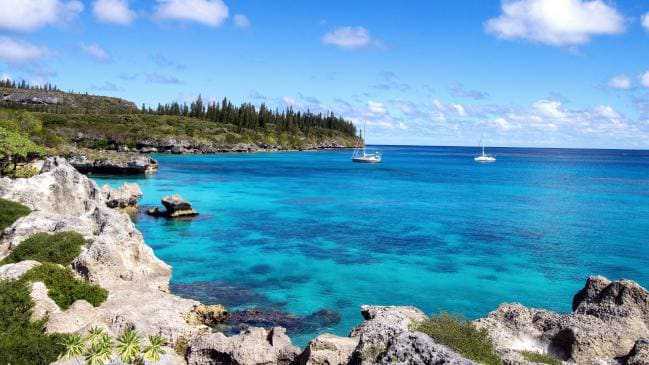New Caledonia’s people to decide whether the popular tourist island should be independent
07 August, 2018

THE next time you visit New Caledonia it could be called Kanaky Nouvelle-Caledonie.
The French territory known for its palm-lined beaches and marine-life-rich lagoon will soon have a referendum that will determine whether it becomes independent from France — a decades-long campaign separatists have been fighting for.
During a visit to Australia, the head of the country’s independence coalition said the time has come for New Caledonia to throw off “colonising power” France and take its place on the world stage.
Its independence from France was inevitable and a “question of dignity” for the nation’s indigenous Kanak people, said Daniel Goa, spokesman for the independence movement Front de Libération Nationale Kanak et Socialiste (FLNKS).
“For us it’s just a question of time, and you know that time in Oceania is measured differently,” Mr Goa said in a speech to the Lowy Institute in Sydney last week.
He speaks ahead of the November referendum asking long-term residents of the Pacific island whether they want it to become independent from France.
“This date is of capital importance and historic for the Kanak people, because it brings to an end 164 years of uninterrupted struggle for our people,” said Mr Goa.
The Guardian reported that if successful, FLNKS has proposed the newly formed country might be called Kanaky Nouvelle-Caledonie (Kanak New Caledonia) and has suggested it also adopt FLNKS flag in place of the French flag.
“Internationally we’ll ensure our sovereignty is recognised and we’ll apply for membership of the UN,” said Mr Goa.
In May this year, Veteran politician Philippe Gomes who served as president of the territorial government from 2009 to 2011, warned that the French territory risks becoming “a colony of China” if it votes for independence.
Mr Gomes said the colony’s population of 270,000 and remoteness made it too small to maintain its security, with the Chinese becoming more assertive in the region.
The Australian reported that his remarks came as a recent poll found 60 per cent of voting-age New Caledonians favoured staying with France, but they were divided in part on racial lines, with the “no” to independence vote concentrated among the white population, and the “yes” vote most prevalent among Kanaks.
Mr Goa called the referendum a “question of dignity”, saying: “As long as a single Kanak person is standing, he will fight for his freedom. That should tell you the importance of this day, and the symbolism of this referendum.”
If it fails the New Caledonian people will be allowed to hold two further referendums on the question of independence: one in 2020, and if that is unsuccessful, another in 2023.
According to The Guardian if successful, the FLNKS would like to dismantle the current economic system, which Mr Goa called the “French system”, saying it was “based on an economy of exploitation”.
“We will take back control of our natural resources and our key sectors, currently controlled by French multinational companies, to ensure a more equitable distribution of wealth by exploiting our main resource, nickel, from which we only draw salaries at the moment,” he said.
New Caledonia, which is about two hours by plane from Brisbane, holds about a quarter of the world’s nickel deposits.
The publication reported that Mr Goa also took aim at French President Emmanuel Macron, who visited New Caledonia in May, saying that “after 164 years of colonisation he recognised that New Caledonia was a jewel”.
However, Mr Goa said that if it became independent he hoped New Caledonia could become “ambassadors for Oceania” to France and Europe and he wanted to “safeguard the status quo with the two regional powers, Australia and New Zealand”.
